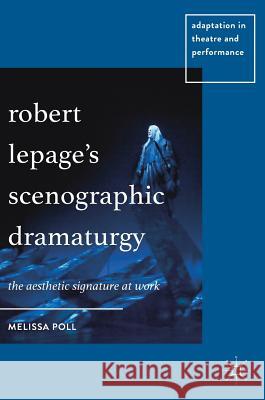Robert Lepage's Scenographic Dramaturgy: The Aesthetic Signature at Work » książka
topmenu
Robert Lepage's Scenographic Dramaturgy: The Aesthetic Signature at Work
ISBN-13: 9783319733678 / Angielski / Twarda / 2018 / 199 str.
Kategorie:
Kategorie BISAC:
Wydawca:
Palgrave MacMillan
Seria wydawnicza:
Język:
Angielski
ISBN-13:
9783319733678
Rok wydania:
2018
Wydanie:
2018
Numer serii:
000811163
Ilość stron:
199
Waga:
0.49 kg
Wymiary:
21.01 x 14.81 x 1.75
Oprawa:
Twarda
Wolumenów:
01
Dodatkowe informacje:
Wydanie ilustrowane











